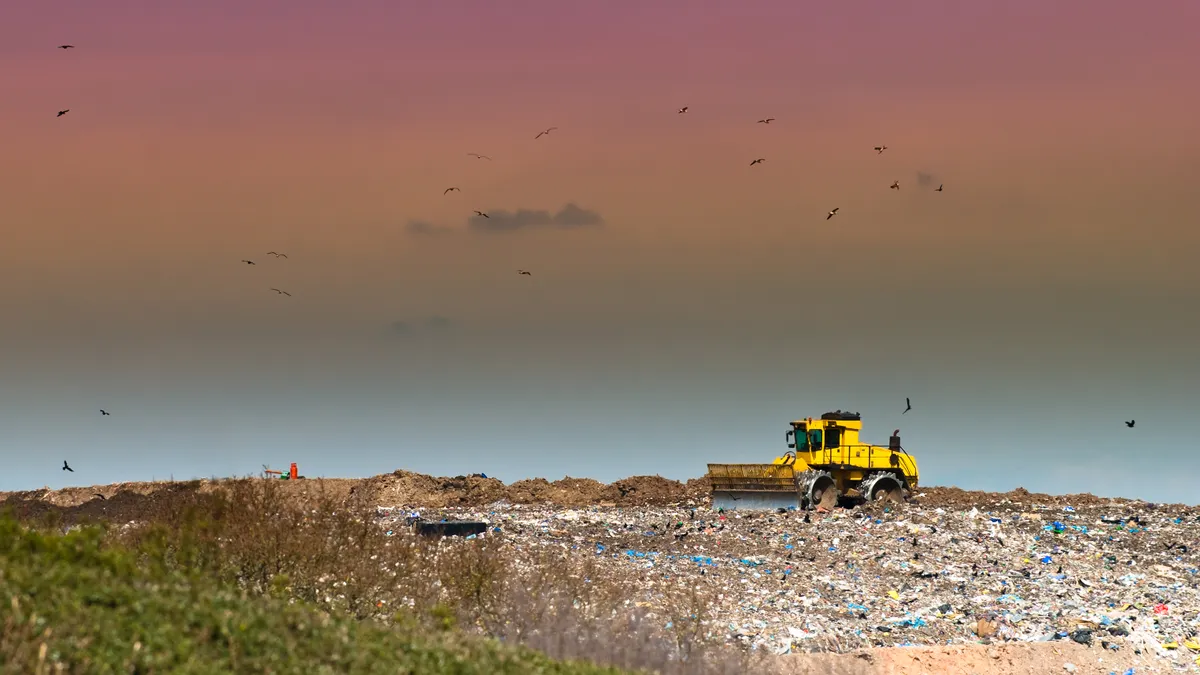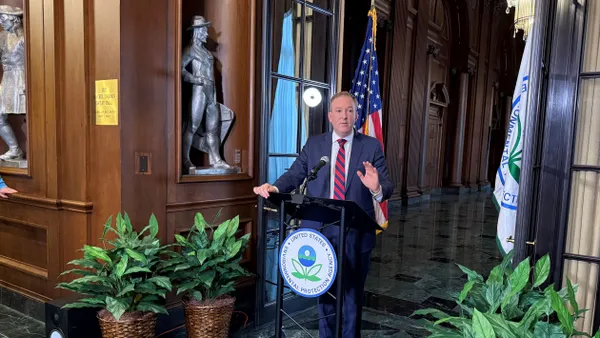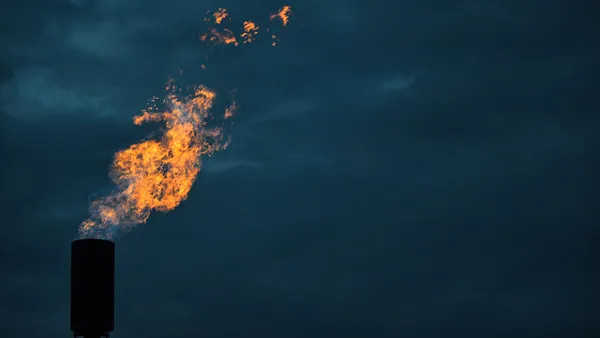Dive Brief:
- The Wyoming Department of Environmental Quality (DEQ) has approved the city of Cheyenne's application for a variance from location standards for Happy Jack Landfill, which is near capacity. The location standards prohibit construction of a solid waste disposal facility within a specified distance from occupied homes or sources of drinking water. The variance means the expanded landfill could set within a mile of 24 homes, though 20 of them are now within a mile of the existing landfill.
- DEQ determined the landfill posed no threats to the nearby private wells, but added two conditions to the agreement: The first requires the city to conduct baseline monitoring of all wells within a half-mile of the expansion, prior to expansion. The second stipulates that should a contaminant be detected the city must test private wells within a half-mile of the landfill within 90-days.
- The proposed expanded site will be lined and have a leachate collection and removal system with leak detection.
Dive Insight:
As always, there are multiple considerations to vet before deciding whether to expand a dump, especially one within close proximity to homes and underground drinking water. The issue has been a concern of Cheyenne residents for some time.
But for now, the city transports its garbage to a landfill in Ault, CO, at an annual expense of about $1.2 million — which seemed the best alternative as neighboring landfills would not accept Cheyenne's trash. The expansion would add 7.2 million cubic yards of capacity to the existing landfill, extending its life by more than 30 years.
Luke Esch, the DEQ's Solid and Hazardous Waste Division administrator, believes the conditions placed on the variance "address citizens' concerns about groundwater and when they would know" of a potential contaminant. They will be notified should there be an event.
Esch attests that groundwater contamination is not likely. The landfill property underwent a geological modeling, mandated by DEQ. The study indicated that, should contamination occur, the toxic waste would not make it from the liner to the soil for 230 years.
These findings have not stopped implementation of what are thought to be necessary safeguards. In addition to the two main conditions for approval, DEQ has laid out eight additional conditions .














